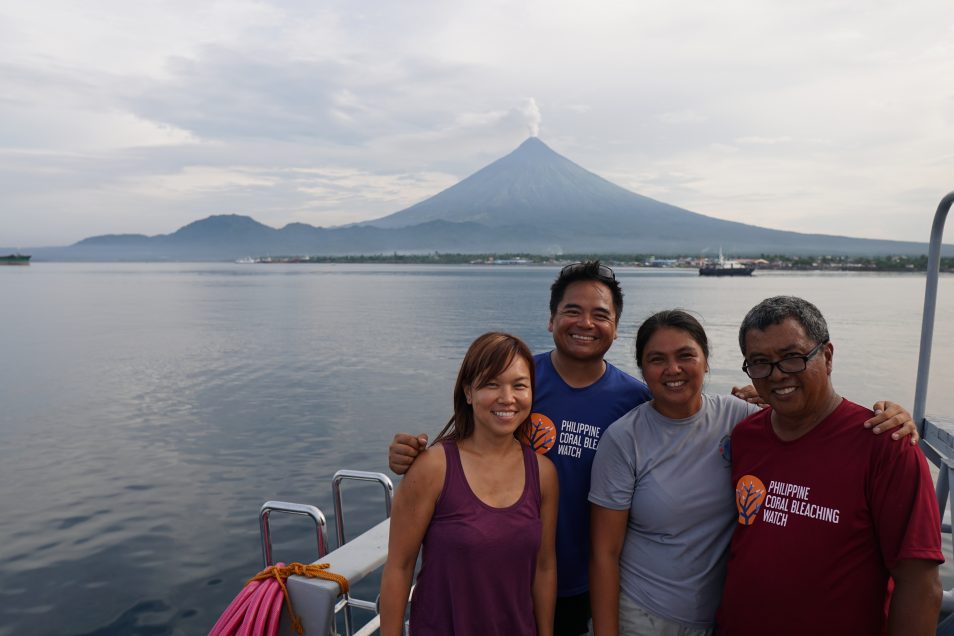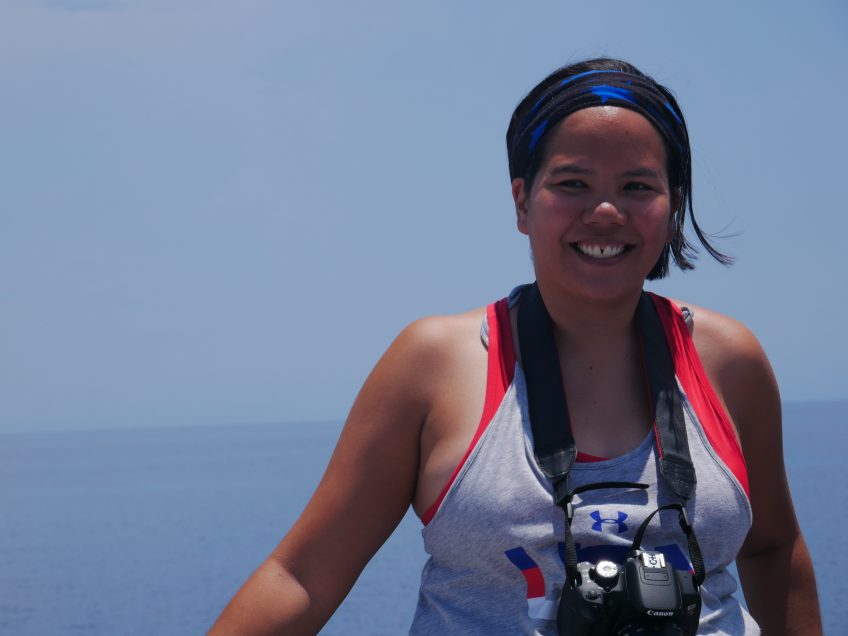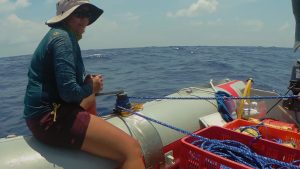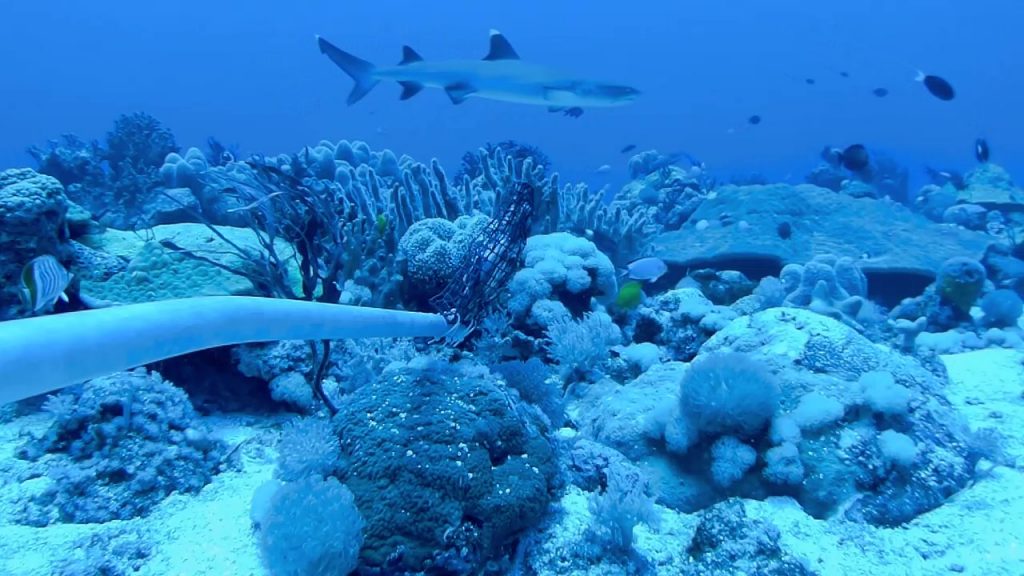
2 SU marine scientists join Benham Bank coral reefs study

Scientists and crew of the University of the Philippines Marine Science Institute’s RV Kasarinlan on the last day of the SECURE Philippine Rise Program expedition at the Benham Bank. (Photo by Jean Utzurrum)
Dr. Rene A. Abesamis and Jean Asuncion T. Utzurrum of the Silliman University Angelo King Center for Research and Environmental Management (SUAKCREM) joined the second leg of the “Securing the Eastern Corridor: Understanding the Resiliency of Reef Environments in the Philippine Rise Region” (SECURE Philippine Rise Program) to conduct studies on the deeper coral reef fish communities at the Benham Bank, May 17-23.

Dr. Rene Abesamis (2nd from left) with fellow Senior Scientists: (L-R) Dr. Hazel Arceo; Dr. Aletta Yñiguez; and the Chief Scientist, Dr. Cesar Villanoy, aboard the RV Kasarinlan docked in Tabaco, Albay. (Photo by Jue Lalas)
The University of the Philippines Marine Science Institute (UPMSI), which implemented the SECURE Philippine Rise Program with Dr. Cesar L. Villanoy as Chief Scientist, invited Abesamis and Utzurrum to conduct coral reef assessments both in the shallows and deeper depths at the Benham Bank with 15 other scientists from UPMSI and UP Cebu.

Jean Utzurrum (Photo by Jeffrey Munar)

Jean Utzurrum, a MS Marine Biology student at Silliman University (SU) Institute of Environmental and Marine Sciences and research assistant at the SU Angelo King Center for Research and Environmental Management (SUAKCREM), uses a winch to pull up a deployed Baited Remote Underwater Video. (Photo by Rene Abesamis)
During the expedition, Abesamis and Utzurrum also assisted the marine biology team of Dr. Hazel O. Arceo, senior scientist at UP Cebu, in data collection using Baited Remote Underwater Video (BRUV) systems. Abesamis said he has been using BRUV systems as a research technique since 2014 to “investigate fish assemblages in poorly understood deeper ecosystems, such as those in the mesophotic zone,” which are depths between 30 m to 90 m.
Aside from coral reef assessments, the project aimed to meet the following objectives: collect target species for genetic analyses to estimate the degree of reef connectivity along the eastern coast of Luzon as influenced by persistent western boundary currents; investigate the physico-chemical properties of the target sites to gain insights on the reef connectivity and adaptation of corals to varying oceanographic and environmental conditions; survey mesophotic coral ecosystems and associated geomorphic features; and document marine biodiversity resources through photo-documentation and sample collections.

A screengrab from SUAKCREM’s video documentation, recorded at 61 m on Benham Bank showing high coral cover, reef fishes and a white tip reef shark (Triaenodon obesus).
The expedition team, assisted by 12 technical divers from the Naval Special Operations Group (NAVSOG), went to the Benham Bank using UPMSI’s newly-acquired ship RV Kasarinlan (MV Eagle V) to conduct oceanographic and biological surveys. Support ships included three other Bureau of Fisheries and Aquatic Resources (BFAR) ships: MMOV 5002, MCS and FV Tambakol.
The Benham Bank is the shallowest part of the Philippine Rise (formerly Benham Rise), which is located 290 km off the coast of eastern Luzon in the Pacific Ocean.

A screengrab from SUAKCREM’s video documentation recorded by a baited remote underwater camera deployed at 73 m on Benham Bank, showing a large school of adult whitemargin unicornfish (Naso annulatus).
Last May 9-16, UPMSI conducted the first leg of the SECURE Philippine Rise Program in the Isabela-Aurora Coast. The program was funded by the Department of Environment and Natural Resources with support from the BFAR, NAVSOG, and Philippine Coast Guard.
(Photos from SUAKCREM. To learn more about SUAKCREM’s work on mesophotic fishes, read their National Geographic Open Explorer blog here: https://openexplorer.nationalgeographic.com/expedition/lifebeginsat30)


